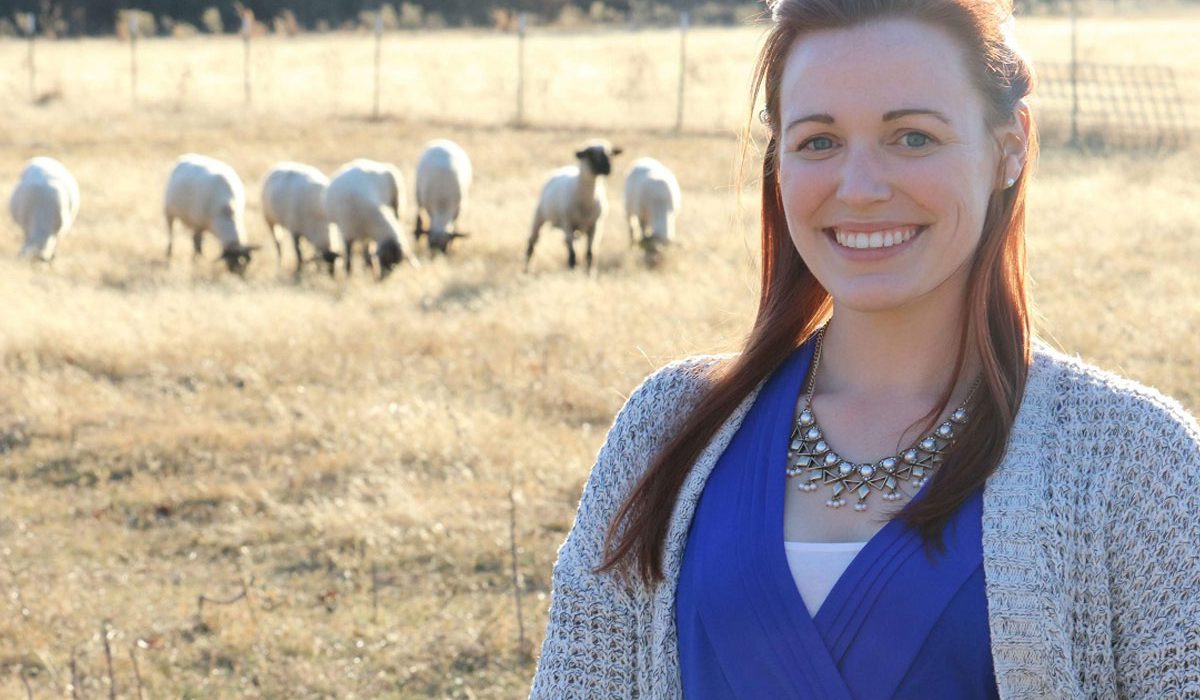Choctaw Nation release
DURANT — For Nikki Schuth-Mitchell of Calera, agriculture is more than her career. The Choctaw Nation employee has been named a Significant Woman in Oklahoma Agriculture by the Oklahoma Department of Agriculture, Food and Forestry. Honorees were nominated by their peers and selected by a committee of industry professionals.
Agriculture has been the cornerstone for Mitchell’s family for many years. Her dad, who ran cattle near Colbert, about 15 miles southwest of Durant, made a deal with her at a young age that she could have a lamb when she turned 9 and joined the Bryan County Clover Leaves 4-H Club.
With the help of their local Ag teacher, Don Allen, her family purchased two lambs.
“It snowballed,” she said. It started with that one Dorset Wether “and by my senior year of high school I had 23 show lambs.”
Her parents, Riley and Jeanne Schuth, traveled with her to shows for the Southeastern Oklahoma Lamb Association, the Texas Jackpot, Kansas City for the American Royal, and many others, including her favorite, the North American International Livestock Expedition.
Mitchell earned her State and America Future Farmers of America degrees. In 2009, she was inducted into the Bryan County 4-H Hall of Fame. After graduating from Durant High School, Mitchell went on to Oklahoma State University (OSU) where she enrolled as a double major in Agricultural Education and Animal Science.
While at OSU, where she also met her husband Michael, she spent some time exploring international agriculture in London. During her four months abroad, she worked with a nonprofit called Urban Orchard, which focused on revitalizing community gardens and orchards.
Shortly after returning home from London, she began looking for career opportunities. A listing with the Choctaw Nation particularly appealed to her because it would be an opportunity to continue educating others about agriculture.
Mitchell was brought on as the first Tribal Extension Agent for the Choctaw Nation’s Agriculture Outreach program, which works to promote agriculture opportunities and success for Tribal members through workshops, field days, on-farm research, demonstrations and technical assistance.
“I was the first one hired with the agriculture outreach program,” Mitchell said. “We work with members of the tribe, the community and youth within the southeast corner of Oklahoma.”
She works closely with OSU Extension, USDA and other agricultural organizations to bring resources to the producers and community members within the 10 ½ counties of the Choctaw Nation.
Mitchell said that because the Choctaw Nation revived the USDA 2501 grant, Ag Outreach is able to connect socially disadvantaged and beginning farmers and ranchers to USDA opportunities and programs as well as provide youth and producer education. In 2017, Choctaw Nation’s Ag Outreach program reached over 100,000 people through 58 community, tribal and agricultural events throughout the state.
Her family is actually Chickasaw, Shawnee and Cherokee. Both of her parents also work for the Choctaw Nation.
“It’s very helpful in the fact that I understand tribal culture,” Mitchell explained. “I didn’t have as much of a learning curve on that front.”
Mitchell also gets the opportunity to work with more than 2,000 students in 26 different schools and incorporate curriculum from the Ag in the Classroom program. During her two years with the program, she said she has been surprised by how little many students know about agriculture and where their food comes from—even in rural communities—such as the belief that chocolate milk comes from brown cows.
“We started teaching Ag in the Classroom once a month to the Jones Academy and now those students are learning about Oklahoma commodities,” Mitchell said. “I would say it’s having a positive impact.”
When she finishes her work as an extension agent each day, she goes to her family farm where she helps take care of 200 Hampshire ewes on 240 acres. She’s responsible for the evening feedings and putting the ewes up for the night. In the summertime, she shears all the ewes herself.
Even if all the chores are done, she still goes out to the farm and spends time with her family. Eventually, Mitchell said, she and her husband hope to build on the family farm.


